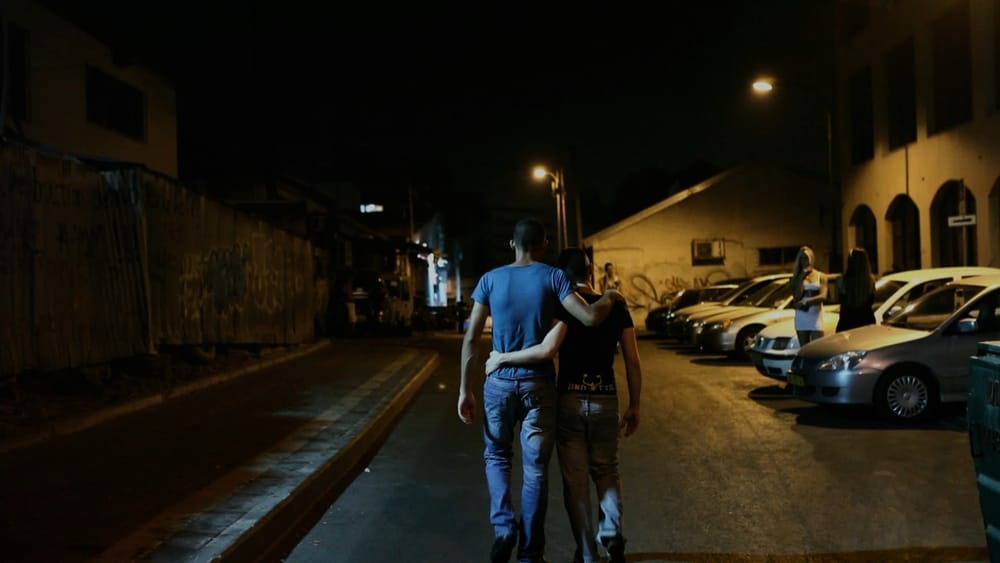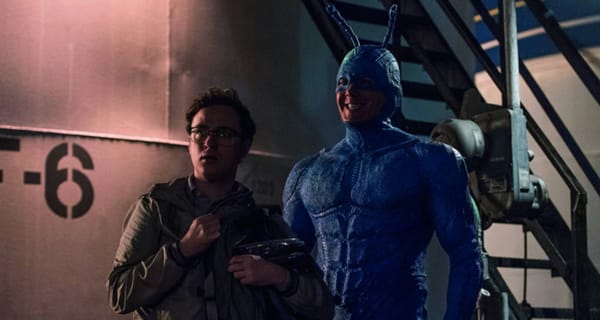Yariv Mozer - The Invisible Men
Yariv Mozer visits Imperial

You know something is amiss when innocent men have to abandon their homes and live as fugitives in a country where they are not welcome, in order to survive. However, this is the situation gay Palestinian men face today.
Ostracized by their own country, shunned by their own people, and threatened by their own families they are forced to flee for their lives. The destination? Tel-Aviv. Where – being Palestinians – if they are discovered they are returned to Palestine, and an awaiting death. To avoid being killed they try to find a means to escape again. This is the cycle, the torment, in which many gay Palestinian men live in today. Escape, hide, capture, return, repeat until death. Director Yariv Mozer’s Invisible Men, offers a raw insight into the lives of some of these men, who have committed no crime except to love those who their society has deemed unfit. It unapologetically shows the struggles these men face, the torture – literal as well as emotional – they have been through and the torture they face. Their lives are at such risk that the only way they are guaranteed to survive is through applying for asylum outside of Israel. The administration involved, compounded with their unsubstantiated belief that they will not succeed, as well as plain reluctance to leave their homeland serve as major deterrents for many men. The film follows three men who decided to apply and tells their story as they progress through the application process.
Mozer has been promoting the message of Invisible Men for the past four years and continued to do so during his Q&A at Imperial. Having directed several films, both features and documentaries, exploring the topic of sexual identity, and identifying as gay himself, he was clearly very passionate about its message. He, however, has the luxury of being an Israeli citizen. Under the protection of his Israeli passport he filmed the Palestinian men (who have since been granted asylum and are safe in Europe) for over 2 years, all the while unsure of whether he would have a finished product in the end – he had promised to never show their faces were they unfortunate enough to not be granted asylum. The complications of shooting the film were numerous: Yariv described how he always had to stay a good distance behind the men whilst shooting in public, for their safety. However, being filmed by a Israeli crew also gave the men a shield; they felt like they belonged in the Israeli community, and hence felt safe. This juxtaposition of what is and isn’t safe highlights the confusing and unstable life the men live, always vulnerable and never at ease. The financial, physical, and emotional effort Yariv put into this film was all for the sake of raising awareness.
The change that is needed is political. However, the move that will catalyse it is how masculinity (and femininity) is viewed worldwide. The mindsets of numerous families, communities, and countries need to be changed about these issues. The view that the LGBT community partake in something ‘dishonorable’ needs to be scrapped. And films like this are necessary in raising awareness to our generation, the ones who can further change about such problems around the world. When asked whether he thought the film had resulted in ‘change’ he replied, “I’m realistic when it comes to making change with the power of cinema. Politicians can make change. Social movements can make change. Sometimes raising the awareness of one person, making him change the way he looks at reality, at life, will show when he meets someone in need, these are the small things that will make a big change. Sometimes one person [at this Q&A] can become a minister or a prime minister in the future, right? And they will change things. And that is stronger than a reality program.”
Thank you to the Imperial College Israeli Society for hosting the event and to Yariv Mozer for an illuminating session.







